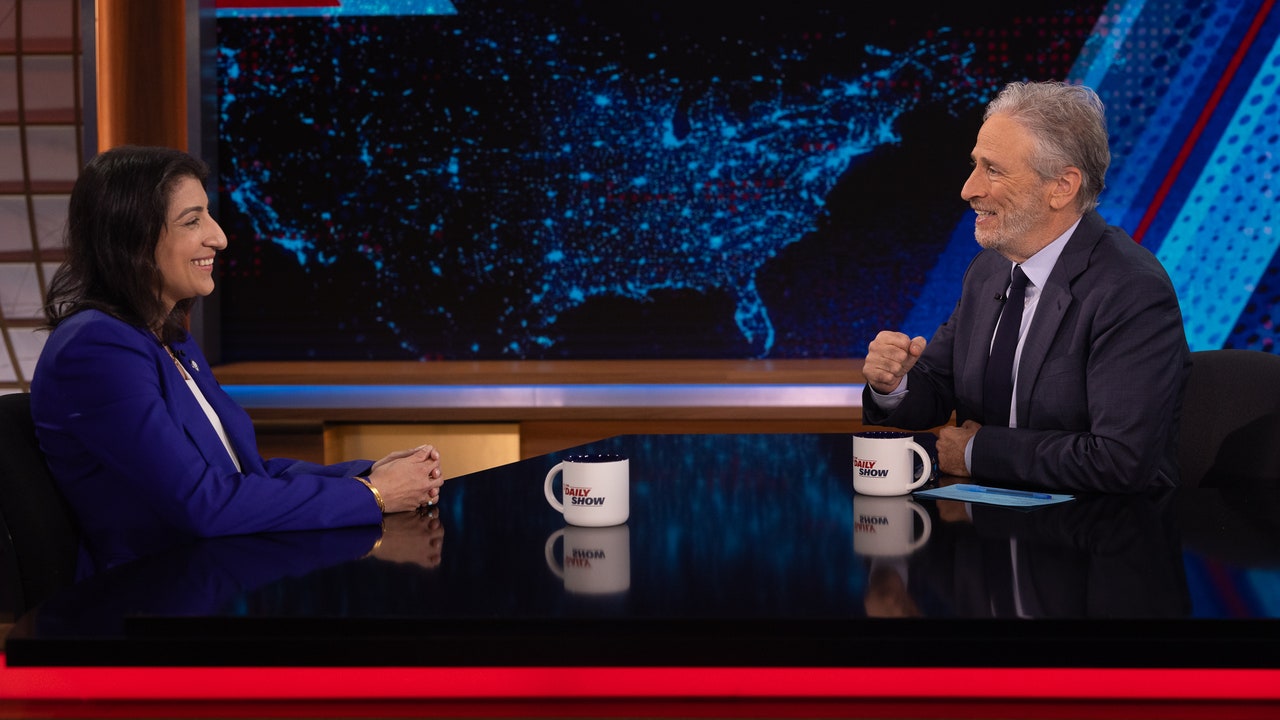- cross-posted to:
- [email protected]
- [email protected]
- cross-posted to:
- [email protected]
- [email protected]
This week, Jon Stewart devoted his edition of The Daily Show to tackling a topic that he claims his former bosses at Apple barred him from exploring. “I wanted to have you on a podcast and Apple asked us not to do it,” the late-night host said to his guest Monday night, Federal Trade Commission Chair Lina Khan, referencing the companion podcast to his former series, The Problem with Jon Stewart that ended last October. “They literally said, ‘Please don’t talk to her.’”
Stewart’s remarks arrive less than two weeks after the U.S. Justice Department sued Apple for exploiting its monopoly in the tech market and violating antitrust laws. The lawsuit highlights Apple’s “power over content creators and newspapers” and notes that the company’s conduct “even affects the flow of speech,” adding, “Apple is rapidly expanding its role as a TV and movie producer and has exercised that role to control content.”
After joking that Apple killed Khan’s potential appearance on the podcast because “I didn’t think they cared for you,” Stewart alleged that Apple also told him not to discuss artificial intelligence. “They wouldn’t let us do even that dumb thing we just did in the first act on AI,” he said, referring to a segment earlier in that episode on the “false promise” of that technology. Stewart then asked Khan: “What is that sensitivity? Why are they so afraid to even have these conversations out in the public sphere?”
Khan replied, “I think it just shows the danger of what happens when you concentrate so much power and so much decision making in a small number of companies.”



My solution is to deny revenue to companies you disagree with. What is your proposal?
Not ignoring the issue and advocating to regulation and breakup of companies that carry this level of power.
Because not buying apple does literally less than nothing to stop them when they are out there potentially purchasing entire movie studios and chipfabricators.
What, you’re never going to watch movies that Apple (later) owns, and avoid using any tech product that an Apple Silicon fab created?
No you aren’t, because how would you know unless you’re obsessively tracking all the subbrands and shell companies.